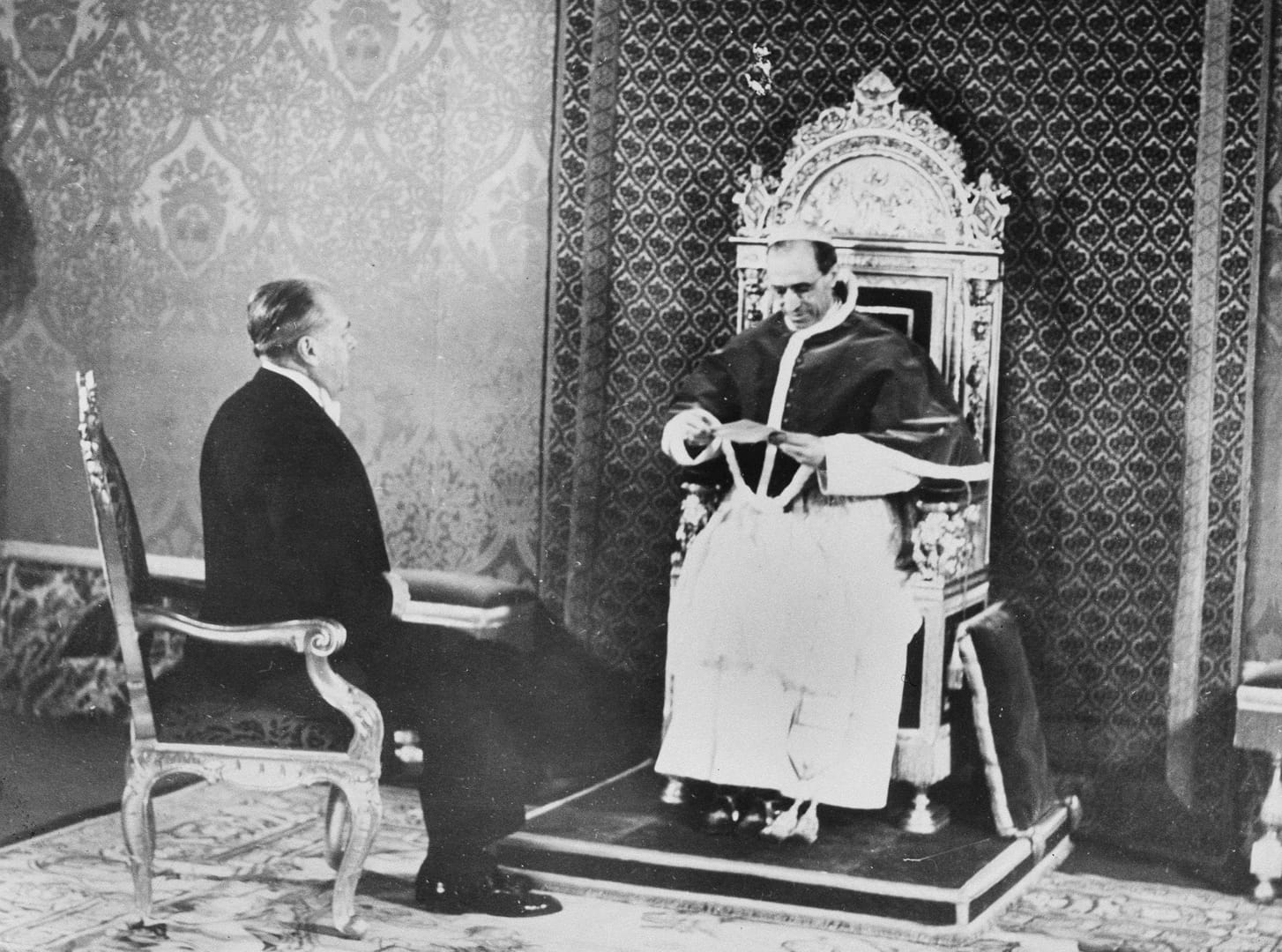ROME – For years controversy surrounding the figure of Pope Pius XII has been a sore point for the Holy See, but Vatican will be seeking to set the record straight when the Vatican archives opens its doors to researchers who will scrutinize all documentation related World War II-era pope.
The documents, texts and letters relating to Pius XII’s pontificate, up to his death, will be made available March 2, the 80th anniversary of Eugenio Pacelli’s election to the papacy.
When announcing his decision to open the archives a year ago, in March 2019, Pope Francis declared that “the Church is not afraid of history but, rather, she loves it, and would like to love it more and better, as God loves it!”
At the time, Francis voiced his confidence that “serious and objective historical research will succeed in evaluating in its proper light, with appropriate criticism, the praiseworthy moments of that Pontiff and, no doubt also the moments of grave difficulty, of anguished decisions, of human and Christian prudence.”
Though appearing “reticent” to some, Francis insisted that Pius XII’s actions were “human and hard-fought attempts to keep alive, in periods of intense darkness and cruelty, the flame of humanitarian initiatives, of hidden but active diplomacy, of hope in the possible favorable opening of hearts.”
Elected March 2, 1939, just six months before World War II erupted in Europe, Pius XII had often been lauded by the international community for his actions during the war, with Vatican Radio considered the only independent voice on a fascist-controlled continent.
However, when Rolf Hochhuth wrote the play The Deputy in 1963, in which he accused the pope of being complicit by his silence in the face of the Holocaust, international opinion began to change.
This came to a head at the turn of the century with the publication of two books highly critical of Pius’s wartime record: 1999’s Hitler’s Pope by John Cornwell and 2000’s Under His Very Windows by Susan Zuccotti.
Several books were then written to defend Pius, including Ronald J. Rychlak’ Hitler, the War, and the Pope in 2000 book and Rabbi David G. Dalin’s The Myth of Hitler’s Pope in 2005.
Although beginning in 1964 – as a reaction to the accusations made in The Deputy – the Vatican had published around 12 volumes of archival material from the World War II period, there was a growing clamor for the full archives on Pius XII to be opened to scholars.
Typically, the Vatican waits 70 years after the end of a pontificate to allow full access to the related documents in the Vatican archives. Yet in the case of Pius XII, who died Oct. 9, 1958 at the Vatican summer residence in Castel Gandolfo, Francis opted to open the archives early, a move many believe is due to pressure the Holy See has faced to allow researchers to review the documents while Holocaust survivors are still alive.
Pope Benedict XVI authorized the archive to begin preparing the documentation for consultation in 2006.
Now, researchers will scrutinize Pius XII’s actions, and their findings could well impact the Vatican’s decision as to whether to declare him a saint.
Work on Pius XII’s cause for canonization began shortly after his death in 1958. He was declared a Servant of God in 1990 and then Venerable in 2009, however, there has been little movement in his cause since then, largely due to controversy over his actions – and inactions – during the Second World War, especially concerning Rome’s Jewish community.
Announcing his decision to open the archives, Pope Francis seemed confident that researchers’ findings would clear his Pius XII’s record, saying his predecessor “has already been examined and studied in many aspects, at times debated and even criticized (one might say with some prejudice or exaggeration).”
Today, he said, Pius XII “is appropriately being reexamined and indeed placed in the proper light for his multifaceted qualities: pastoral, first and foremost, but also theological, ascetic, diplomatic.”
The decision to open the archives could clarify some of these lingering questions.
To prepare for the opening of the Pius XII documentation, the Vatican has scheduled a press conference Feb. 20.
Nine people representing the archive in various capacities will be present to answer journalists’ questions, including Cardinal José Tolentino Calaça de Mendonça, the Vatican’s lead Archivist and Librarian; Monsignor Alejandro Cifres Giménez, archivist for the Congregation of the Doctrine of the Faith; Monsignor Luis Manuel Cuña Ramos, historical archivist for the Congregation for the Evangelization of Peoples; and Johan Ickx, historical archivist for the Vatican Secretariat of State’s section for Relations with States, as well as a number of other officials.
Follow Elise Ann Allen on Twitter: @eliseannallen
Crux is dedicated to smart, wired and independent reporting on the Vatican and worldwide Catholic Church. That kind of reporting doesn’t come cheap, and we need your support. You can help Crux by giving a small amount monthly, or with a onetime gift. Please remember, Crux is a for-profit organization, so contributions are not tax-deductible.














